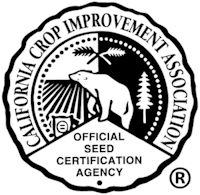Membership meeting
All members are invited to attend the combined membership and board of directors meeting on September 27, 2007 at 9:00 am at the Monterey Conference Center. If you plan to attend, please contact Kitty Schlosser at 530-752-0544 or meschlosser@ucdavis.edu before September 17 so we can make sure there are seats available for all attending. She will then send you additional information about the meeting. There is no registration fee; travel and lodging expenses are the responsibility of the member.
Reorganization
In August 2006, Larry R. Teuber was appointed Executive Director of the CCIA. Dr. Teuber has been associated with the CCIA for many years as academic advisor. He is a professor in the UC Davis Department of Plant Sciences and conducts research in the breeding/genetics and biology of floral characteristics influencing alfalfa pollination by honey bees, resistance to lygus bugs and whiteflies, and production management. As part of the CCIA reorganization, the Information Technology activities were contracted with the UC Davis Department of Plant Sciences, the data base was rewritten and incorporated into an internet based application and notification system. This change resulted in the elimination of several staff positions. In an unrelated change, the administrative manager, Sandy Fisher, retired in December and we wish her well in her retirement. We were pleased in May 2007 to welcome Kitty Schlosser to the CCIA as the new administrative manager. Kitty comes from the Plant Sciences department and has seed industry experience from working for Northrup King in the early 1980’s.
Online applications
As many of you already know, the CCIA has updated the application process. Applications are now submitted online via the CCIA web page at ccia.ucdavis.edu. The online process will reduce paperwork, accelerate the communication of information, allow inspection reports (Field and Seed) to be accessed at any time, and is expected to make all aspects of the application/reporting process faster and more efficient. California is the first of any Crop Improvement Association in the country to make this process available online. Members received a letter with their logon, password, and instructions for how to complete the application. Maps can be viewed online using Microsoft Virtual Earth. This program provides aerial photos with roads marked so fields are relatively easy to locate. The user then uses the online tools to draw a line around the perimeter of the field. The tags/certificates required are scanned and uploaded as a pdf or image file. For users who are unable to scan their tags/certificates we have allowed them to mail them to us and we scan and add them to their application.
New certification numbers
The new number system will have two changes from the old system. We will no longer use an A or P (designating Annual or Perennial) following the year. The A or P will be replaced with CA as a designation that the seed is certified in California – this is to help others quickly determine the certifying agency. The second change is the addition of a 3 digit random number. This number will be unique each year but will be consistent within a given year relative applicant, crop, and seed class. In the sample number below, the “11008” portion of the certification number will be uniquely assigned to applicant, crop, and seed class and will remain as a constant/consistent part of the certification number for as long as the applicant, crop, and seed class combination exist.
OLD number: 07A-11008 (Production year and Annual crop – consistent crop identifier)
NEW number: 07CA-371-11008 (Production year and state of origin – random number – consistent crop identifier)
Liberty link testing
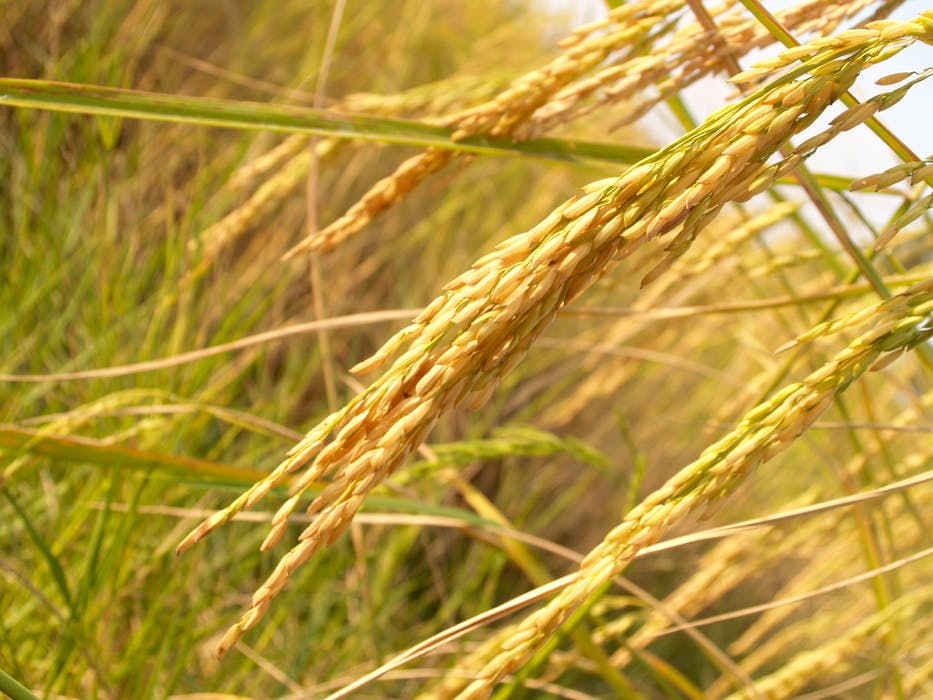 There was some concern that the Liberty Link gene in rice might show up in other rice varieties. The CCIA provided the services to receive samples from local growers and ship a portion of the samples to a lab for testing. This testing has now been completed. There were no GM trait detected in any seed tested for the 2007 crop year. Complete results are available on the California Rice Commission web site at www.calrice.org/AB_2622.htm.
There was some concern that the Liberty Link gene in rice might show up in other rice varieties. The CCIA provided the services to receive samples from local growers and ship a portion of the samples to a lab for testing. This testing has now been completed. There were no GM trait detected in any seed tested for the 2007 crop year. Complete results are available on the California Rice Commission web site at www.calrice.org/AB_2622.htm.
Round-up Ready alfalfa update
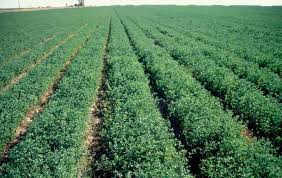 The Geertson Seed Farms, et al brought a suit on February 2, 2007 in the 9th District court against the USDA claiming that USDA abrogated its responsibilities by not carrying out a complete Environmental Impact Study prior to the regulation of the Round-up resistant trait in alfalfa. They further claimed that organic and conventional alfalfa producers will suffer irreparable economic damage as a result of uncontrolled movement of the RR gene into non-GMO crops. In a decision handed down on May 3, 2007, Judge Charles Breyer upheld his preliminary injunction sustaining the plaintiffs claims. In Judge Breyer’s decision he derided USDA to conduct a complete EIS. Until such time as the EIS is completed NO RR alfalfa can be planted after March 31, 2007. The RR trait in alfalfa is again regulated. Hay and seed fields already planted can continue to be produced. The location of all hay and seed fields must be disclosed to the court and all seed supplies sequestered and reported.
The Geertson Seed Farms, et al brought a suit on February 2, 2007 in the 9th District court against the USDA claiming that USDA abrogated its responsibilities by not carrying out a complete Environmental Impact Study prior to the regulation of the Round-up resistant trait in alfalfa. They further claimed that organic and conventional alfalfa producers will suffer irreparable economic damage as a result of uncontrolled movement of the RR gene into non-GMO crops. In a decision handed down on May 3, 2007, Judge Charles Breyer upheld his preliminary injunction sustaining the plaintiffs claims. In Judge Breyer’s decision he derided USDA to conduct a complete EIS. Until such time as the EIS is completed NO RR alfalfa can be planted after March 31, 2007. The RR trait in alfalfa is again regulated. Hay and seed fields already planted can continue to be produced. The location of all hay and seed fields must be disclosed to the court and all seed supplies sequestered and reported.
All parties have agreed that the RR trait is safe. The disagreement revolves around the potential economic impact. Data collected on gene flow by Dr. Teuber are part of the court record and will be considered by AOSCA as they review the isolation standards for alfalfa and stewardship strategies.
On August 13th, Monsanto filed a notice of appeal in U.S. District Court seeking to overturn the permanent injunction on Roundup Ready alfalfa.
New cotton standards
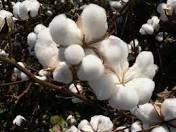 Fusarium oxysporum f. sp. vasinfectum, Race 4 (FOV4) was identified in California in 2005, and is believed to have been here since the mid-1990’s. According to the UC Management Guidelines for Fusarium Wilt on Cotton, “Race 4 is significantly more virulent and can cause severe symptoms on certain Pima varieties and mild to moderate symptoms on most ACALA varieties. Seedlings of susceptible Pima varieties often die and resemble plant losses caused by damping-off fungi. Stand establishment in some fields is markedly reduced. The distribution of race 4 is not fully known, but it apparently occurs in a limited number of fields.” This fungal pathogen is causing significant impact in many cotton fields in the San Joaquin Valley.
Fusarium oxysporum f. sp. vasinfectum, Race 4 (FOV4) was identified in California in 2005, and is believed to have been here since the mid-1990’s. According to the UC Management Guidelines for Fusarium Wilt on Cotton, “Race 4 is significantly more virulent and can cause severe symptoms on certain Pima varieties and mild to moderate symptoms on most ACALA varieties. Seedlings of susceptible Pima varieties often die and resemble plant losses caused by damping-off fungi. Stand establishment in some fields is markedly reduced. The distribution of race 4 is not fully known, but it apparently occurs in a limited number of fields.” This fungal pathogen is causing significant impact in many cotton fields in the San Joaquin Valley.
Due to the persistent nature of Fusarium in the soil, crop rotation has not been an effective means of controlling the disease. The only means of control is prevention and the production of resistant varieties. In regards to prevention, it is reported in an article published by The American Phytopathological Society that, “The seedborne nature of this pathogen [FOV] is no doubt responsible for the worldwide distribution of some strains and is an important consideration in the movement of seed from one area to another.” And the UC’s management guidelines mentioned above state, “Cotton seed should never be produced in infested fields. This is especially true in fields infested with race 4, which can cause devastating yield losses in certain Pima varieties.”
The following will be added to the cotton standards:
- Reject fields shown to have FOV4
- Plant or soil samples must verify presence of disease in suspected fields
- Fields verified as having FOV4 shall not be eligible for future cotton seed production The updated standard is available on the website at: ccia.ucdavis.edu/seed_cert/cotton.htm.
Research funds awarded
CCIA collects research fees for several commodities. The following research projects were approved for funding in 2007-08:
- “Alfalfa Experimental Variety and Germplasm Adaptation and Evaluation” by Dan Putnam
- “Annual Budget for Shafter Research and Extension Center” by Brian Marsh
- “Pollen-mediated Gene Flow of Pima Cotton in California” by Allen Van Deynze
- “Development of Wheat Varieties for California”by Jorge Dubcovsky
- “Evaluation of Small Grains in California” by Lee Jackson
Organic audit
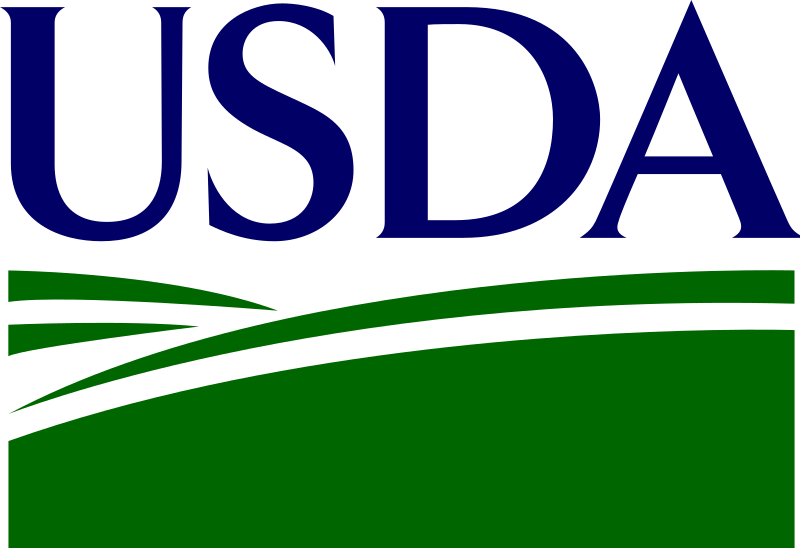 The CCIA was recently audited by the USDA to ensure our compliance with the National Organic Program. We passed the audit with a few minor non-compliance issues. The CCIA currently provides organic certification to 80 clients.
The CCIA was recently audited by the USDA to ensure our compliance with the National Organic Program. We passed the audit with a few minor non-compliance issues. The CCIA currently provides organic certification to 80 clients.
